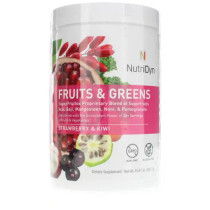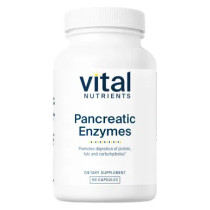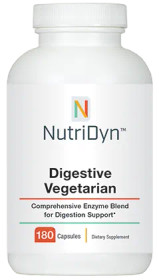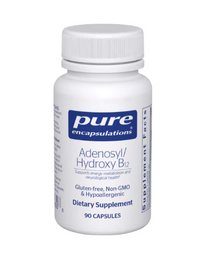Digestive Enzymes
Each portion of digestion is important to the overall function and goal of the digestive tract. Healthy digestion promotes normal breakdown of foods and nutrients, appropriate amounts of stomach acid, and maintaining a healthy balance of flora (the "good gut bacteria."). All portions of the digestive system are important, however, sometimes one needs to focus specifically on one section or another.
There are many signs of poor digestion including diarrhea, constipation, vomiting, gas, bloating, heartburn, abdominal pain and even skin problems like acne or eczema. Due to a typical American diet, many Americans suffer from digestive issues. One of those issues is the disruption of digestive enzymes which help to break down our foods and nutrients.
Thanks to the Standard American Diet (SAD), more than half of the U.S. population suffers from some form of digestive issue. Eating too much processed food can rob your body of important digestive enzymes. Why are enzymes important?
When you eat, your body has to break down the food so it can absorb the nutrients in the food. These nutrients include simple sugars, amino acids, vitamins, minerals and fatty acids. Most of your digestive enzymes are produced in your pancreas and the small intestine. You can also get them from the food you eat — real food that is.
Common Causes of Digestive Enzyme Issues:
- Aging
- Chronic stress
- Low stomach acid
- Parasites
- Microbial imbalance in your digestive tract
- Leaky gut (intestinal permeability)
- Celiac disease
- Crohn's disease
























